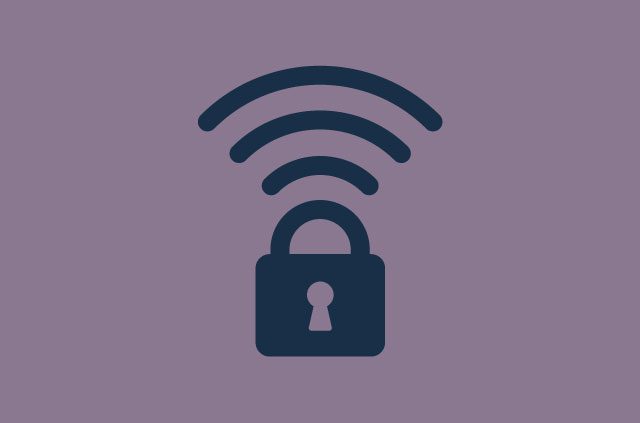
Coco Chanel – the brains behind the popular Chanel brand of today – believes that the best things in life are free. She also believes that the second-best things are those which are ‘very, very expensive.’ Going by this analogy, it is almost difficult to classify free public Wi-Fi under the category of best things or the second-best things.
Don’t get me wrong – I love free Wi-Fi too. What I love more is the fact that it allows me to do all those things I would never dream of doing on my own personal mobile data. That makes it one of the best things that come free.
When one considers the dangers of free Wi-Fi though, it could then be lumped into the group of second-best things that are very expensive.
I don’t blame you if you have not given much thought to how vulnerable you might be whenever you click on that Accept button in the terms and agreements provided by these public Wi-Fi networks.
Before you make that choice again, here are some things you need to be aware of.
What Are You Agreeing to Exactly?
I don’t have any data to back this up, but I can almost assure you that more than 90% of everyone that sees a privacy policy/ terms and agreements online will agree without reading through the contents.
Considering how long and tiresome these documents come, no one should be blamed. However, there are some important blocks of texts in there that could have made you change your mind, should you have taken the time to go through them.
One of the most straightforward public Wi-Fi policies is run by the University of Colorado which informs you outright that ‘Wireless access is, by nature, an insecure medium.’ They go on to reinforce this statement by informing you that ‘any information being sent or received over the… wireless network… could potentially be intercepted by another wireless user.’
This same point is buttressed by MidMichigan Health which informs patients and visitors logging onto their networks that ‘ is not a secure network.’ To that end, they advise that you do not ‘view or send sensitive information such as financial, personal or proprietary information.’
Even the folks over at Melbourne Airport agree that they ‘cannot guarantee the security of the Hotspot at all times.’
You should notice that all of these establishments are big firms that could pay well to tighten their internet securities. Making it free though, there has to be some laxity, and they cared enough to warn you beforehand.
Insecure? So, what?
All you have to do is get onto the Wi-Fi network and enjoy the internet as you’d like. What do you have to worry about the connection being secure or not?
A lot. An awful lot.
One of the biggest differences between your personal home/ office connection and a public Wi-Fi connection is that you can use the former in the comfort of your personal space. In that sense, everything you do will only be seen by you and the people you allow into your home/ office space.
A public Wi-Fi connection does not provide the same level of privacy. Anyone walking by you or peeping over your shoulder will be able to make out whatever you are doing online. For those who work with sensitive programs, apps or transmit sensitive data online, this could represent more than a personal risk.
If you have started thinking about the scenario above, know that we have barely scratched the surface. Even if you have your back to a wall and know that no one is looking at your computer screen, a hacker somewhere could have access to all your data in real time.
Another detriment of the insecurity on free Wi-Fi networks is something known as the man-in-the-middle attacks.
As the name implies, a hacker intercepts your communication with a receiving server/ person and manipulates what you send. They can use this medium to make you/ the receiver disclose sensitive information to them.
Yet another scenario that you could be presented with is the possibility of uploading malware to your computer over the Wi-Fi network.
In short, there are almost endless ways an experienced hacker could manipulate Wi-Fi networks to steal your data, hijack your personal accounts and cause you a lot of damage.
How Can I Protect Myself?
The logical option would be to stop connecting to public Wi-Fi networks of any kind. This would mean giving up all the perks that come with enjoying massive volumes of data without worrying about the costs.
Thinking about how safe your data and privacy would be for it though, that cost is a minimal one to pay.
If you would like to keep enjoying public Wi-Fi connections, this is the time to think about investing in a quality Virtual Private Network (VPN) service. These pieces of software are very important in the way they help you:
- Protect your internet data from hackers that could be snooping around
- Prevent your computer from downloading malware that could be transmitted on the Wi-Fi network
- Allow you access content that might have been blocked on the Wi-Fi network
- Throw hackers off your trail when you connect to another server location and so much more.
Wrap Up
Public Wi-Fi networks, no doubt, make our lives easier while broadening our options for linking up to the internet too. It is thus almost disheartening that some unscrupulous individuals will exploit such an avenue to cause harm to unsuspecting users on the network.
Now that you have been informed of the various dangers you could be exposed to though, you are in the best place to safeguard yourself against such attacks.
Can’t resist the temptation to use a public Wi-Fi when next you see an open one? Invest in a quality VPN today.
